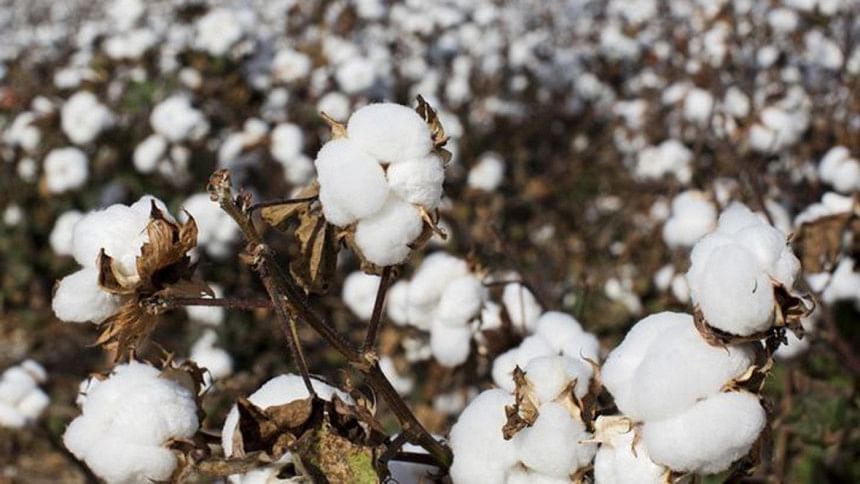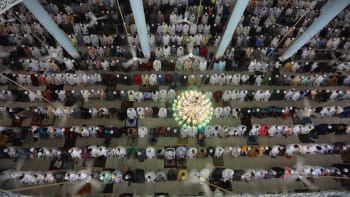Fumigation of US cotton not required

Bangladesh has again demanded that garments made from US cotton be provided duty-free access to the American markets as the government has withdrawn a provision requiring fumigation of American cotton, Senior Commerce Secretary Tapan Kanti Ghosh said yesterday.
Bangladesh placed the demand in a meeting with senior officials of United States Trade Representative (USTR) at the secretary's office in the capital's commerce ministry yesterday.
The country demanded the same in the last meeting of the Trade and Investment Cooperation Forum Agreement (TICFA) in Washington in December last year, he said.
The next TICFA meeting may be held in Dhaka in September this year, Ghosh also said.
The Bangladesh Garment Manufacturers and Exporters Association (BGMEA) has also been demanding the same. It has already sent letters last month to different state governors and senators of the US.
The secretary shared the information at a press conference after yesterday's meeting.
The US government usually does not allow duty-free access to garment items imported from any country, Ghosh said.
Bangladesh lifted the rule of mandatory fumigation of US cotton this month and the south Asian nation asked for reciprocity through the special access, he said.
However, the fumigation is still mandatory for raw cotton brought in from other North American countries, as those are not scientifically tested like the ones imported from the US, he said.
In the meeting, the USTR officials complained about the export of counterfeit goods from Bangladesh to the US, he said.
There is no scope of sending any counterfeit goods from Bangladesh to the US and European Union as the consignments are audited by different organisations at different levels before shipments are finally made, said Ghosh.
The USTR also stressed the need for improving the business climate to attract more American investment to Bangladesh, he said.
Ghosh said the government has already changed the renewal time for trade and export and import licences. Previously, those licences needed to be renewed every year but now they need to be renewed every five years, he said.
The USTR also expressed concerns about the government's new data protection act, which might discourage the US businesses to invest more in Bangladesh, he said. Ghosh said the visiting USTR team would sit with the ICT ministry today.
Regarding the labour situation, he said the government has been updating the labour laws and rules under a National Action Plan addressing requirements of the EU for a GSP Plus facility and publishing those on public websites so people could know about them.
During the discussion, Bangladesh did not directly request for revival of the GSP to the US markets but demanded preferential market access, Ghosh said.
However, Bangladesh sought US support in the forum of World Trade Organization in obtaining an extension of least developed country facilities beyond 2026.
He also said the issue of US sanctions on officers of the Rapid Action Battalion of Bangladesh was not discussed during the meeting as it was not the issue of the commerce ministry.
From the US side, Brian Luti, director for South Asia regional affairs at the National Security Council, Brendan Lynch, deputy assistant at the USTR, and Mahnaz Khan, director for South Asia at the USTR, attended the meeting.
After the meeting, none from the USTR talked to journalists.

 For all latest news, follow The Daily Star's Google News channel.
For all latest news, follow The Daily Star's Google News channel. 







Comments